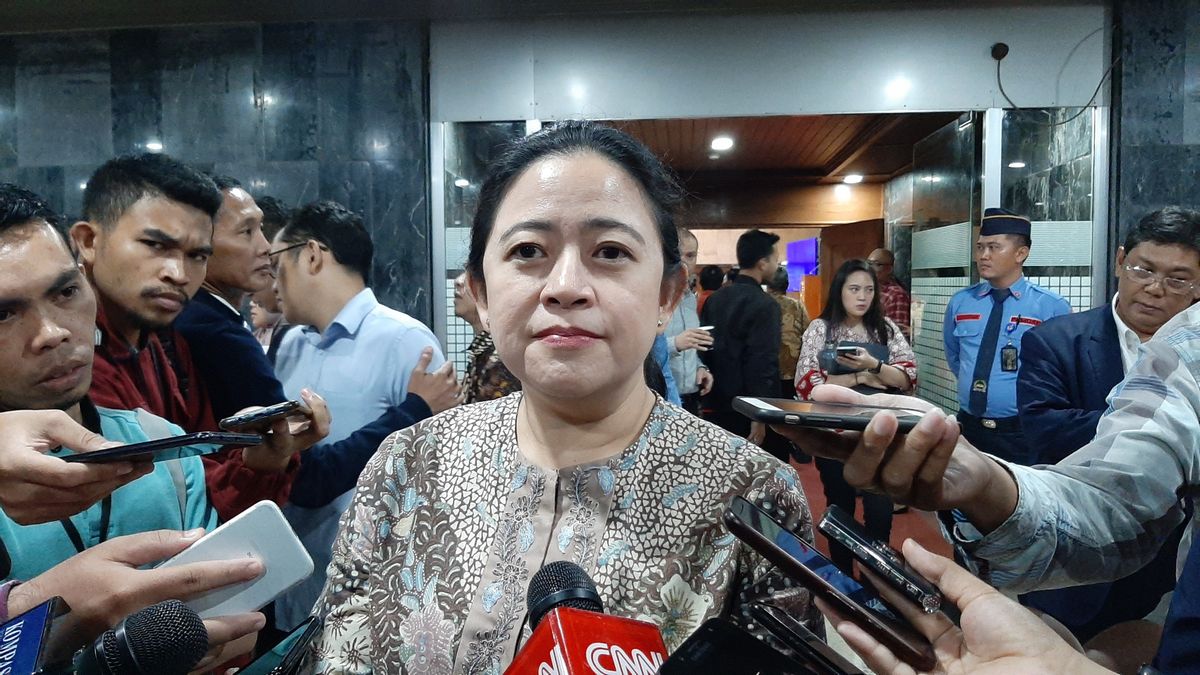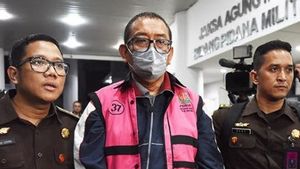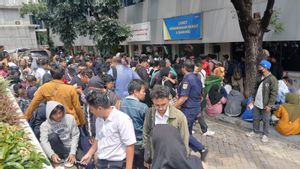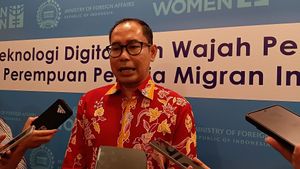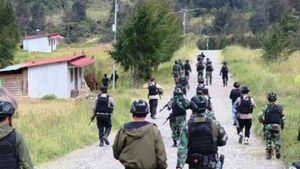JAKARTA - The plan to repatriate Indonesian citizens (WNI) who were once members of the radical ISIS group continues to be the talk of the community. If the repatriation is finally carried out, then the government must rearrange the regulations until they are handled after arriving in Indonesia, this also makes the government not have a single voice.
Chairman of the People's Representative Council (DPR) Puan Maharani asked the government to carefully ensure the ownership of Indonesian passports of former ISIS citizens in the Middle East. Because, as is known recently, a video was circulated showing a group suspected of ISIS burning their passports.
Puan said the government must also ensure that these former ISIS citizens still have the desire to return to their homeland as Indonesian citizens.
"What is certain is that we have to pay close attention first. Do these 600 Indonesians still have passports? Did they voluntarily leave their Indonesian passports to go to a country to become ISIS? That's the first thing we have to do and pay attention to," he said. , at the DPR Building, Parliament Complex, Senayan, Jakarta, Monday, February 10.
In addition to ensuring passport ownership, Puan also hopes that the government will be careful in selecting ex-ISIS Indonesians who still recognize as Indonesian citizens or not. So, the discourse of repatriating hundreds of residents to the country cannot be done in a hurry.
"So don't be in a hurry, let's see what the situation is like and the conditions there. Do they still admit to being Indonesian citizens? If they don't want to become Indonesian citizens, of course the government must pay attention to more careful steps. and be more anticipatory to be able to repatriate them. So don't be in a hurry, "he said.
CIIA Terrorism Observer Harits Abu Ulya said the government's plan to repatriate former ISIS citizens needed to study more deeply the rules by combining various approaches, law, humanity and security.
"The legal approach is what is the regulation, the humanitarian approach to the basic rights of every person must be considered. People cannot be stateless. Then the third is the security aspect. It must be harmonized in order to produce fair, firm, humane and civilized decisions," he said, when contacted by VOI.
According to Ulya, from the security aspect, it is natural that there are concerns when people who once had extreme understanding would return to the country. However, this should be returned to policymakers to analyze the extent of the potential threat.
"It cannot be left wildly to the public. This society is worried, which society? That's why it returns to those who have the authority to make an objective analysis of the extent of the threat," he said.
Ulya explained that so far this is not the first time Indonesian ex-ISIS citizens have returned to Indonesia. Previously there were also many Indonesian citizens who returned, even after returning they did not take any dangerous actions.
"Because actually many Indonesian citizens have been repatriated, they have been arrested in Turkey, many have been repatriated, only one or two of them have violated the law. Not all of them. There is no problem, their life is fine," he explained.
Currently, the government also has a deradicalization program, according to Ulya, not all of the ex-ISIS Indonesian citizens are involved and become combatants in this radical group. Not a few who become victims of them are women who accompany their husbands and children.
According to him, so that the repatriation of the ex-ISIS Indonesians would not cause security problems, the government could include them in the deradicalization program that is currently running in Indonesia. The goal, so that there is a change in mindset or perspective, the extreme returns to a normal pattern. This program, can also minimize potential threats that are a concern. However, this program must also be evaluated if the repatriation of 600 Indonesians is carried out.
"So far, the program has been running. Many people who have been deported by ISIS sympathizers have been living fine, normal lives. The point is this deradicalization program needs to be evaluated comprehensively about the program's effectiveness. Because it concerns the problem of its paradigm, its operational concept. content or narratives to be able to move away from extreme views that are suspected of being terrorists or sympathizers of terrorist groups need to be evaluated, "he said.
Moreover, said Ulya, currently in the latest Terrorism Law, namely article 12A and article 12 B of Law 5 of 2018, it has regulated the punishment for the level of one's involvement in terrorism cases.
If Indonesian citizens who are ex-ISIS are proven to be combatants and need to be considered a criminal act, said Ulya, when they return to their homeland the government can provide punishment according to the applicable law.
"So talking about a legal approach, maybe such an action can be criminalized or not? Is that so. If it is considered a criminal when they return home, they must give punishment. However, it needs to be clarified, not all those involved become combatants," he explained.
However, according to Ulya, the repatriation of ex-ISIS Indonesians needs to be studied more by the government. This is because no one is allowed to be stateless. Moreover, if referring to Law number 12 of 2006 concerning citizenship, article 23 point d states that Indonesian citizens lose their citizenship if they "enter the service of a foreign army without prior permission from the President".
"They joined ISIS, right? They did not join the country. This is confuding, means Indonesia recognizes that ISIS is a country? Nothing. So this is just a group," he explained.
Previously, President Jokowi has still refused to repatriate former ISIS citizens. However, Jokowi called the rejection because there had been no further steps. So, regarding this matter, his party will meet first.
Jokowi said the government was still taking into account the various impacts if an ex-ISIS citizen was to be returned to Indonesia. Jokowi will discuss both positive and negative impacts in a limited meeting.
"Yes, if you ask me (now), it is not over (the meeting is limited), yes. If you ask me (now), I will say no (can come back). But, it is still leveled," said Jokowi.
The English, Chinese, Japanese, Arabic, and French versions are automatically generated by the AI. So there may still be inaccuracies in translating, please always see Indonesian as our main language. (system supported by DigitalSiber.id)
